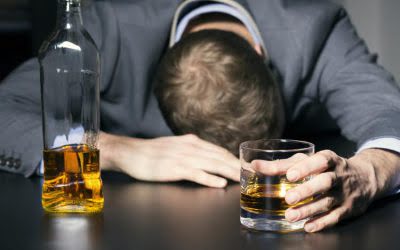+86-(0)768-6925905
Content
The majority of dependent drinkers can detox safely and successfully at home and do not require hospital admission. Therapy here at GMBHC and get started on this journey today by contacting us now. Of course, these same chemicals can cause you to crave https://ecosoberhouse.com/ drinking again which can be a serious problem for former alcoholics for obvious reasons. These imbalances will continue to keep your system craving alcohol. In early recovery, our bodies are trying to reconnect and reconfigure their operating systems.
- Alcohol detox happens when the body removes any remaining alcohol from the system.
- Give patients the Alcohol and Drug Information Service telephone number in case they need support or advice when the surgery is closed.
- It also rests your brain chemistry and gives it time to return to normal after a period of alcohol use.
- Clinical management of withdrawal symptoms through a supervised detox program is the safest way to ensure you are properly cared for and monitored.
However, it is absolutely essential to speak with a doctor about your situation before you try this. Detoxing at home works best for people who are trying to quit alcohol for the first time and are likely to only have mild withdrawal symptoms. If you fall into one of these categories, it’s important to seek professional medical help and to detox in a supervised alcohol detox medical setting. This will ensure that you receive the proper care and support you need to safely and effectively overcome your alcohol addiction. Have a history of mental health conditions, such as depression or anxiety, that could be exacerbated by alcohol withdrawal. Self-detox is an individualized approach without professional or medical support.
Ready to Get Started?
Alcohol withdrawal symptoms can be painful and potentially life-threatening, so it’s important to have people you can rely on. If you don’t experience intense withdrawal symptoms, an at-home detox may be a good option. However, alcohol withdrawal syndrome is dangerous and require supervision from medical professionals. When you detox from alcohol, you may feel withdrawal symptoms, especially if you’ve become physically dependent on alcohol. A self-detox can be dangerous because you don’t have access to medical care for the most severe symptoms of alcohol withdrawal. Generally speaking, you will start to feel withdrawal symptoms for the first time eight hours after you last had a drink.
- The brain adjusts to the overstimulation of these receptors by reducing their sensitivity, allowing them to function normally while being overstimulated by alcohol.
- Once the assessment is complete, you will be placed in a detox program.
- Participating in activities that promote overall health and well-being is essential for a successful recovery.
- Have previously attempted home detox and experienced complications or failed to achieve sustained recovery.
- If you are a heavy or chronic drinker, it is important to get professional help to stop drinking.
- Your doctor can help by prescribing medications for alcohol withdrawal that can alleviate or even stop some of your symptoms.
If you suddenly stop consuming alcohol, your brain’s foreign supply of nervous system suppressing chemicals will have suddenly run dry. During an exam, they’ll look for other medical conditions to see if they could be to blame. It slows down brain function and changes the way your nerves send messages back and forth.
Drinking That Leads To a Substance Use Disorder
For the remainder of your first week in detox, different withdrawal symptoms may come and go. This is also the timeframe where you’re most at risk for life-threatening symptoms such as delirium tremens. Withdrawal symptoms can begin to surface in as early as two hours after your last drink. While the most painful symptoms typically subside within the first week, some mild symptoms can last for several weeks to a year. There is no exact timeline as to when or what withdrawal symptoms you will experience; however, there’s a general outline of what to expect.

When alcohol is removed, the GABA receptors are not sensitive enough and cannot suppress the nervous system correctly. This leads to over-excitement of the nervous system until the brain can increase GABA receptor sensitivity and restore normal balance. We have strict sourcing guidelines and only link to reputable media sites, academic research institutions and, whenever possible, medically peer reviewed studies.
